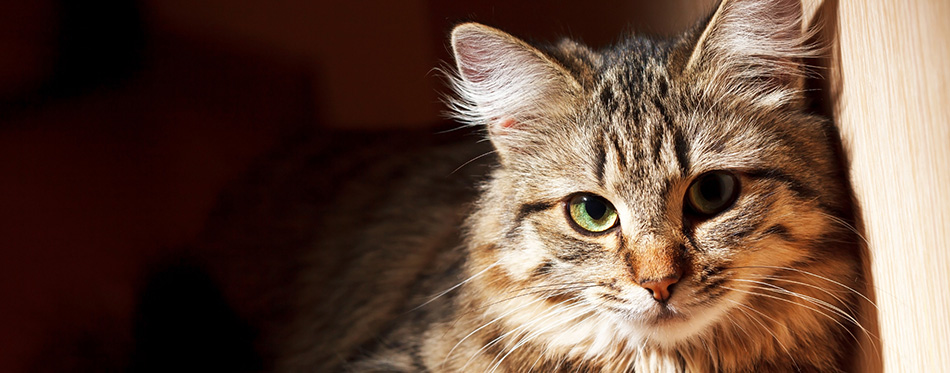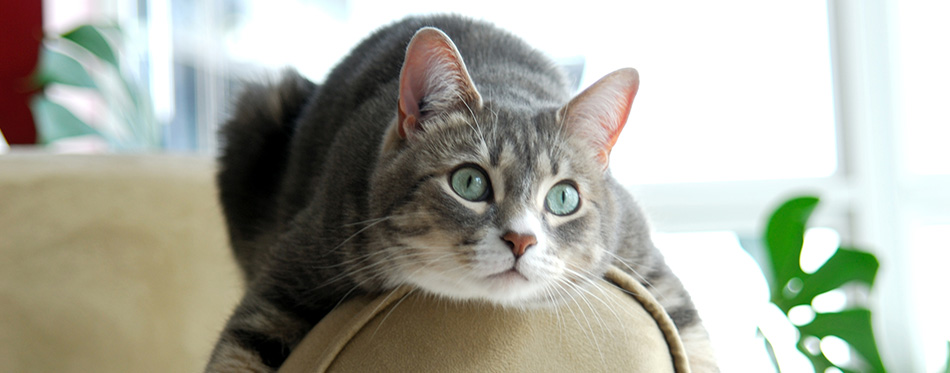If your cat is drooling, then it may be a cause for concern as a loving owner. With cats, drooling is not thought of as a regular occurrence as it is with dogs. Most cat owners would wonder exactly what it means, and if it might be serious when your cat drools. However, the fact is there are quite a few conceivable reasons behind drooling in cats. Defining the cause comes down to evaluating the circumstances, understanding your cat, and connecting with your vet when essential. Below are some answers to the questions Why Is My Cat Drooling? And Is it Normal?
Regular Drooling in Cats
It is comparatively common for many cats to drool. Drooling is frequently a sign of relaxation and satisfaction in cats. Drooling when contented and comfortable goes right back to being a kitten. Kittens frequently knead their tiny paws on their moms to release milk and adult cats relate to this. This behavior leads to a nourishing meal at the same time as forming a nurturing bond between the mother and her kitten. So this means that when kittens reach maturity, feelings of satisfaction frequently lead to kneading behaviors, which then arouses drooling since there is a connection to this previous bond. Purring regularly goes together with the kneading and drooling behaviors.
Therefore, if your otherwise fit and active cat is in your lap and starts purring, do not be totally amazed if some drooling occurs. This is normal and in its way, this is your cat is showing you some much-needed affection.
Cats do not normally drool like dogs at the sight of food, but it can occur. So, when your cat drools at food, but never at any other times, then this is perhaps nothing to be concerned about. Stress might cause a cat to drool momentarily, like during car trips or vet appointments. When your cat regularly gets very stressed on a consistent basis and drools as a result, then it is a When drooling is short-lived, then there is probable little cause for worry, but there may be other causes.

- Cat drooling when purring
As it is in their nature, it appears that some cats will simply drool as a natural response to any kind of positive stimulation. This will characteristically go together with loud purring and sitting on your lap looking for love. In other words, if your cat is drooling when purring they are usually just feeling remarkably relaxed and satisfied. There is nothing to worry about, a drooling cat is fairly often simply a contented cat.
- Cat drooling while sleeping
Many cats, like people, do drool while they sleep. However, take notice of any other general changes in your cat’s behaviour if they start drooling while sleeping. A difference in their need to eat, difficulty in swallowing, bringing up food, or pawing on their face can suggest a greater issue, but a cat drooling while sleeping alone is not a symptom of anything serious. Whenever you are worried take your cat to a vet for an in-depth check-up. Drooling when they sleep might be an overproduction of saliva that is just natural to your cat or they may simply require a change their sleeping position when they are dreaming to deeply. It may also help to ensure you keep up dentist arrangements and keep vaccinations up to date for your cat.
- Cat drooling and sneezing
A sporadic drool in cats is ordinary when they sneeze. But you might need to be worried if your cat recurrently drools and this is out of character. If you start to see that one drool leads to another and the signs do not go away, at that moment it is important to consider that it is a complaint which requires your attention. There are a number of reasons why your cat may keep drooling while they sneeze.
- Bacterial Infections. When your cat drools frequently when they sneeze, it is likely that it may have an infection. It occurs when bacteria or a type of virus infects your cat and is the most common reason why your cat is unexpectantly drooling. This can be difficult to get rid of without help. Veterinary care is essential since this situation can become serious.
- Your cat has Allergies. Allergens like pollen are accountable for triggering an allergic reaction when your cat is sensitive to things causing them to sneeze. Drooling can occur and allergic reactions can be a result if your cat is exposed. However, you can effortlessly manage this complaint by identifying the type of substance that your cat seems to be allergic to and then remove it. If it is not possible to rid your home of the source of the allergy then veterinary advice is essential. You may also like our article on hypoallergenic cat food.
Abnormal Drooling in Cats
When your cat’s drooling happens continually, or if it cannot be related to exposure to pleasure or food, then there might be a health issue happening. It is vital to take your cat to your vet at least once every year for routine exams, even if your cat appears to be healthy. A vet can frequently notice problems before your cat displays signs much better than you can.
Where non-standard drooling happens in between regular vet appointments, you must contact your vet straight away. It is possible that your cat wants to be taken in for an examination to see what is causing drooling in your cat. But, it is important not to panic as there are numerous minor health issues which might cause drooling in cats.
- Dental Issues
Cats often have numerous dental problems that go unnoticed until they cause discomfort. This agony frequently causes a cat to salivate disproportionately. This can be a result of many things, gum disease, mouth ulcers, wounds or infections. Dental issues are a famous cause of drooling in cats. Your vet should inspect your cat’s mouth as they look for dental issues that have occurred without your knowledge. When you suspect that your cat has dental disease, your vet will most likely recommend specialized dental cleaning. Medications might be necessary to sort out your cat’s mouth problems too.
For more options, check out our detailed reviews of Cat Toothpaste and Cat Toothbrushes.
- Cat feeling ill
A cat that is unwell or has been vomiting will frequently drool a lot. Sickness and nausea in cats may have countless causes, which can range from gastrointestinal inflammation, kidney disease, and other less serious conditions. When your cat appears to be nauseous or has a reduced appetite, then it is a good idea to see your vet.
After inspection, your vet might recommend more tests to get a better look at your cat’s wellbeing by inspecting things such as blood cells and organ function. The overall results from such tests will can help govern the next steps for treatment when your cat is drooling too much.
Head over to our review of Vitamins For Cats for more options.

- Toxin Contact
Occasionally a cat that is out and about may have licked, bitten, or ingested a poisonous material which will be evident by the excess salivation. There are lots of toxins in the environment that can cause your cat harm. These may consist of lethal plants, acidic chemicals, and toxic foods. It is really important that when you are suspicious that your cat may have been exposed to a somewhat toxic substance then you go to your vet right away.
- Foreign Bodies
It is an emergency when your cat has a thing stuck in their mouth, and this is going to blatantly cause drooling. String or cotton are a common foreign body that your cat likes to play with, but other potentials include children’s toy parts and surprisingly even grass. If you discover string dangling out of your cat’s mouth it is imperative that you do not pull on it, because it might be wrapped around something deeper and could cause massive damage. As an alternative, go to the nearest vet to seek expert advice. When you notice that there is something in your cat’s mouth that you can reach, continue with caution before attempting to remove it. You cause further damage to your cat if you try but you may also get bitten.
- Trauma
Damages to the mouth can frequently lead to excessive drooling. For example, cats that have gnawed on electrical cords may have oral burns that will lead to excessive drooling. Where a cat has been hit by a car without the owner knowing, it might have a broken jaw which can cause drooling in cats. It should also be acknowledged that cats who have oral damages caused cat fights outside of your home can often drool. You might not see evidence of a wound on the outside, nonetheless, drooling will be a sign that you must see a vet.
When your cat is unexpectedly drooling and you are not able to uncover an obvious reason, then it is essential to contact your vet. Cats are specialists at hiding any kind of sickness. They habitually do not show there is a problem up until they feel extremely sick. Whenever you are in doubt about why your cat is drooling then do not wait and make certain to call the vet.
Source:
- Why Is My Cat Drooling? – PetMD

